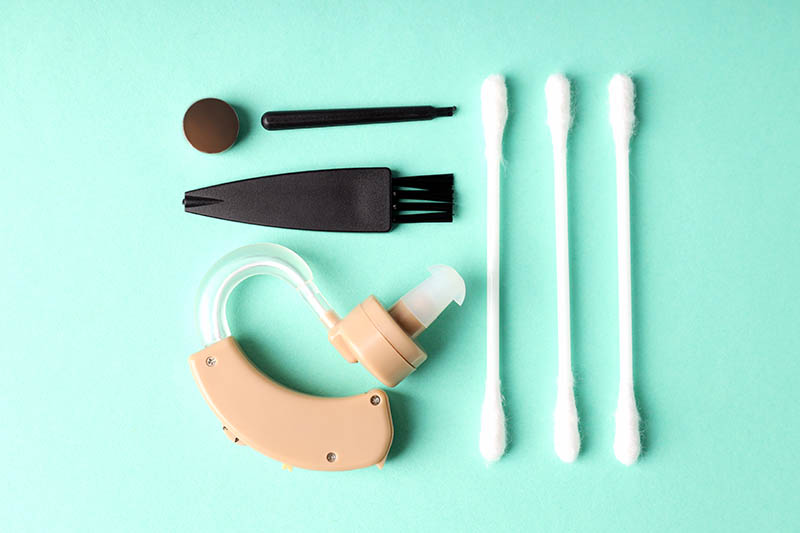
For people with hearing loss who use hearing aids, the enormous benefits of social engagement, work productivity, and enjoying hearing the world around you are only tempered by how well your device functions. Today’s hearing aids are small and powerful, filled with modern technology. These devices are much more prone to failure due to everyday use. Proper care and cleaning are vital to helping keep your device functioning when it’s needed. The following hearing aid maintenance tips will help you to ensure it keeps working over its lifetime.
Hearing Aid Maintenance Tips: Cleaning Tips for Your Hearing Aids
Clean Your Device Every Day
Inspecting and cleaning your hearing aid every day is essential. Microphone inputs, sound output channels, and volume controls can become blocked and obstructed by ear wax, sweat, and debris. Start with a wipe-down with a soft damp cloth to clean the outside. Always wash your hands before handling your devices; never use chemical-based or alcohol cleaners. Avoid sharp objects to clean any openings due to the damage they can cause. Always use the correct cleaning kit designed for your device. If it’s filthy or you cannot clean it yourself, an audiologist can provide a deep cleaning service.
Storage Tips
Proper storage is as necessary as good cleaning habits; both will ensure your device works when needed. It’s not advised to leave your hearing aids in the open air when not in use. Even moisture in the air can cause permanent damage. The good news is that many storage cases also operate as dryers and antibiotic systems that protect your hearing aids while they are stored.
Taking Care of Batteries
Hearing aids only work when they have adequate power. These devices must have the correct batteries with a reasonable charge to function. The charge time for a battery depends on how much the device is used. The average lifespan for disposable batteries is around two weeks. Having extra on hand is a good idea, so you’re not scrambling for replacements when the current set gets used up. Always store batteries in a dry, cool place when not used.